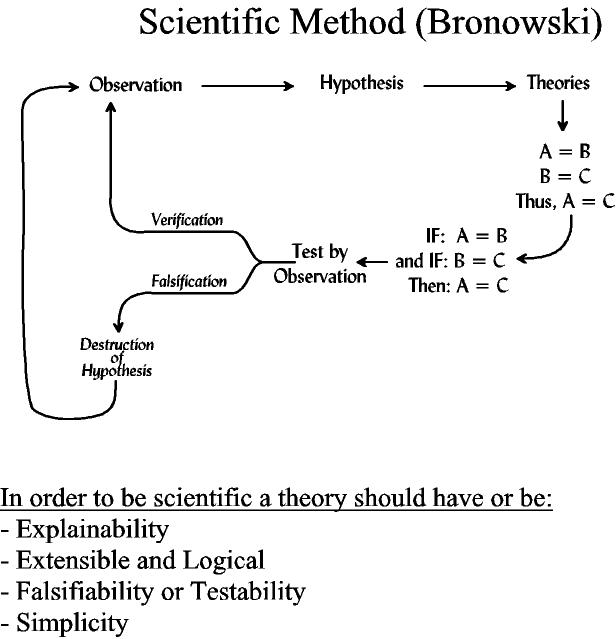The Scientific Method

Science as a Way of Knowing
~What can we as humans come to know?~
The Cognitive Imperative
". . . man automatically, almost reflexively, confronts a stimulus whose source is not known with the question, "What is it?"
"Man is driven to understand the world around him. He cannot do otherwise."
There are three ways the cognitive imperative can be satisfied.
These latter two solutions provide both a cognitively and psychologically satisfying solution.
We call these solutions myths.
Myths and Mythology
4. Any fictitious or imaginary story, explanation, person or thing" (American Heritage Dictionary)
This is the way most people would define a myth, but note that it is the 4th definition.
1. A traditional story originating in a preliterate society, dealing with supernatural beings, ancestors, or heroes that serve as primordial types in a primitive view of the world."
A more scientific meaning....
~ A myth is a true story that relates the
origin and endings of things ~
But how do we know if a myth is true?
~ "It is so because it is said to be so" ~
the Netsilik Eskimos declares to justify the validity of their sacred history and religious traditions.
If we have different myths, how do we know whose is true?
Kinds of Truth
1. Mythical Truth. "It is so because it is said to be so."
2. Empirical Truth = Inductive Logic. "It is raining." "The doorbell is ringing."
3. Analytical Truth = Deductive Logic.
4. Scientific Truth
The Paradox of Scientific Truth
A new view of science and the Scientific Method (Jacob Bronowski)
